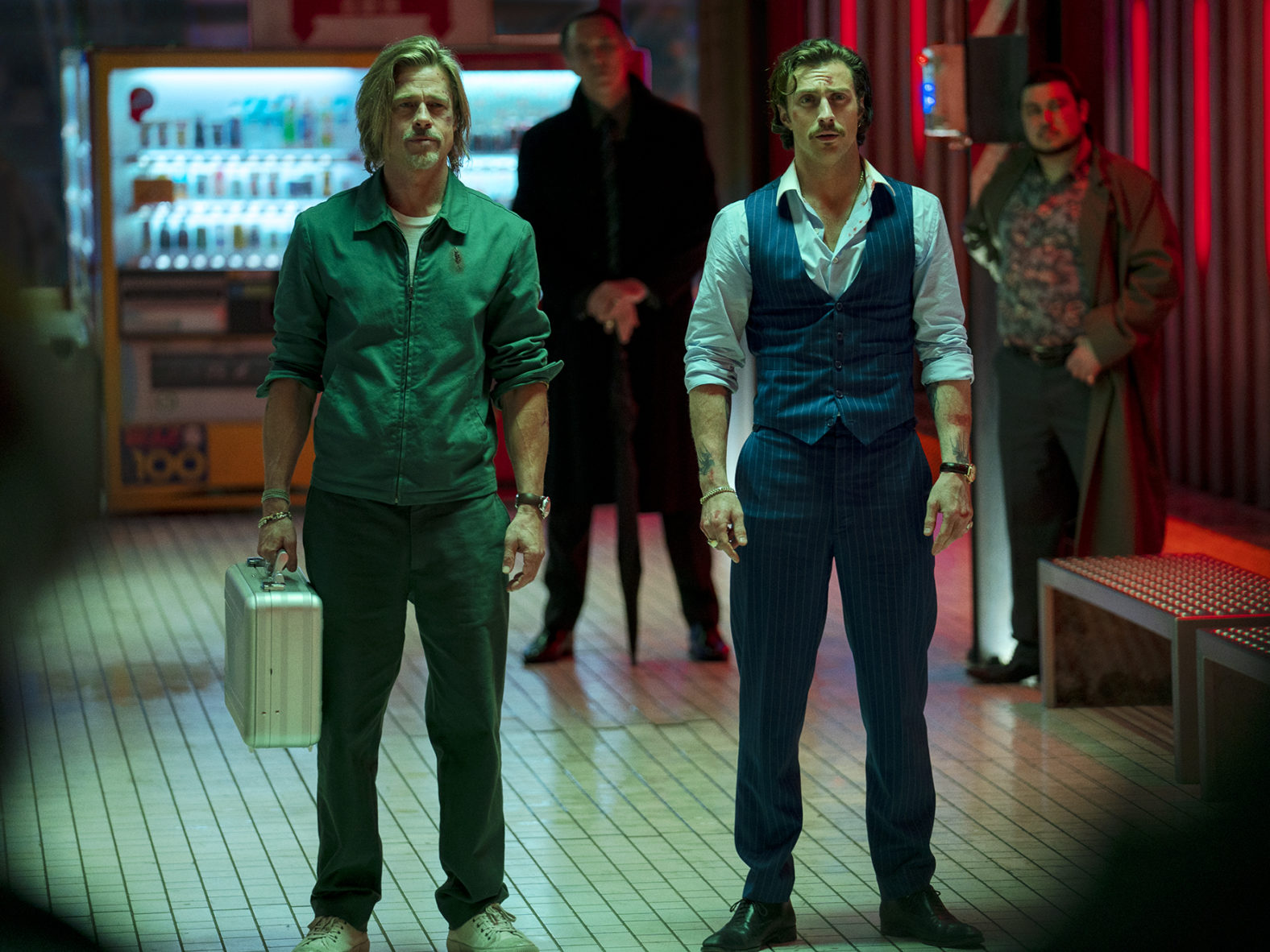I’m just going to say it. I’m tired of superhero films. As much as I do enjoy them, I have felt overwhelmed by them for the longest time. I have the anxiety to see all of them, yet find myself often leaving the cinemas feeling underwhelmed. So, when Bullet Train was announced, I could not have been more excited.
Directed by David Leitch, with a screenplay by Zak Olkewicz, Bullet Train is based on the novel MariaBeetle by Kōtarō Isaka which was translated to English by Sam Malissa. However, the rights to the film were sold to Sony before the book was translated into English.
The premise of Bullet Train all take place on, you guessed it – a bullet train, where a bunch of assassins are aboard a Hayate train heading from Tokyo to Kyoto with different missions and objectives, but all with a common route and goal.
Bullet Train is the type of film that you can only really watch once. The story is filled with mystery, thrills and is very much a heist film. The way that the storyline twists and turns will hold you on the edge of your seat, have you cackling, and keep you guessing at the same time. The film’s set designs, costuming, choice of colours, and decent fight scenes, while accompanied with a catchy soundtrack, will keep you thoroughly entertained throughout its journey.
The cast are also incredibly impressive and work well together to bring this dynamic story to the big screen. Brad Pitt, Aaron Taylor-Johnson, and Brian Tyree Henry are absolute standouts in this feature as their respective characters Ladybug, Tangerine, and Lemon. I also adored Hiroyuki Sanada as The Elder and have been a long-standing fan of his work ever since I saw him in Ring, the Japanese original horror film, not the Hollywood remake. Which leads me to my issue with Bullet Train, Asian representation.
Only recently, Hollywood has been heading in the right direction with films such as Crazy Rich Asians, Shang-Chi and the Legend of the Ten Rings, and more recently, the box office phenomenon from this year that is Everything Everywhere All At Once. There is a reason why these films have done well, and it’s because representation matters.
Bullet Train is a wasted opportunity to be on the right side of history. For a film set in Asia, never have I see so many Caucasians in one confined area, unless of course they’d be on some kind of guided tour, and even then, I’ve never seen it. Not in Japan. While the film is based on a novel and are in no ways based on factual events or real people, the characters were written to be all Japanese, and it is still extremely unbelievable that on a bullet train in Japan, the one person trying to signal the two bickering foreigners to shut up would be an elderly old white lady. I mean, what are the chances!? Few and far between, and completely unbelievable.
While I have no issues with Brad Pitt leading the cast, it’s painfully obvious that the directorial decisions did not care for Asian representation. The only Asian characters are background characters which barely have screen time in comparison to the rest. These Asian characters are shown as the victims or bystanders of the story, they are not heroes, because the white American male somehow needs to be the hero.
Bullet Train may be refreshingly fun amongst the superhero film pile but it also pretty much provides more of the same Hollywood bullshit that I am severely tired of. Never have ever I been so thoroughly entertained yet deeply insulted at the same time. Bullet Train reminds me of a Japanese manga with the way its story is told, and for the most part, it does a lot right. Except for the part of respecting its origins, the misrepresentation in its casting, and knowing who its audience really is. It will never rise to the amount of success that it could have because of these poor decisions and because it’s not art. It’s just a film inspired by art but stripped bare and diluted for blind severely whitewashed mass consumption.
